





Colorado DUI, DWAI and DUID Laws, Sentencing, Rules and Regulations 2012
The DUI laws in Colorado are among the strictest in the nation. What follows is a compilation of the various laws that apply in Colorado DUI cases – by Denver and Colorado DUI Lawyer – H. Michael Steinberg
(If you’ve been charged with Colorado DUI DWAI , the law allows only 7 days for your Colorado DUI Lawyer to make a request with the Colorado DMV (Division of Motor Vehicles) for a hearing to save your driving license
Colorado is a member of the Interstate Drivers License Compact
An agreement between participating states to share information regarding certain types of convictions including DUI – DWI and related Drunk Driving offenses. If a resident of one state gets convicted of a drunk driving offense in another state, the driver’s home state will be notified. The type of action that the driver’s home state will take will vary from state to state.
ALL DRIVERS – BAC LIMIT = 0.08%
In the State of Colorado it is crime for ANY driver to drive with a BAC (blood alcohol content – concentration) of 0.08% and above.
ALL DRIVERS – BAC LIMIT BETWEEN 0.05 – 0.08% – DWAI
It can be considered a crime to drive with a BAC (blood alcohol content – concentration) of more than 0.05% but less than 0.08% if a persons driving ability is impaired. This is known as DWAI (driving while ability impaired).
MINOR (under the age of 21) – BAC LIMIT = 0.02%
It is a crime for persons under 21 years of age to drive with a BAC (blood alcohol content – concentration) of 0.02% or above. Any driver under the age of 21 convicted of DUI or DWAI will have a mandatory 1 year driving license suspension.
It is an offense to refuse to submit to a chemical test in Colorado under the express consent law which is similar to the implied consent laws of other counties.
You can be prosecuted in Colorado without driving while you are over the legal prescribed BAC limit.
Under Colorado law, it is unlawful to drive with a BAC limit above the per se laws OR to drive while impaired under the influence of alcohol and/or drugs.
Under this law the prosecution must show that the driver was IMPAIRED by alcohol and/or drugs. The level of impairment is usually based on observations and evidence of driving ability (or rather inability), physical appearance, field sobriety tests and any other relevant evidence which can help prove a persons driving ability was indeed impaired. Different amounts of alcohol can affect people in different ways, what may impair one persons driving ability and make them feel drunk, might not necessarily impair another persons driving ability.
Observations from a law enforcement officer that may lead to being stopped and arrested include:
•Making a turn too widely or narrowly
•Using two lanes, straddling the center line
•Almost hitting someone or something
•Weaving or drifting from one side of the road to another
•Driving too slowly and being overly cautious
•Driving too close to vehicle in front
•Driving ON the center lines
•Erratic braking
•Swerving to correct course of vehicle
You can be charged with an offence regardless of your BAC level, as long as impairment can be proved to the legal extent necessary.
A skilled drunk driving attorney can help you defend any charges against you
What is BAC – Blood Alcohol Content?
Blood alcohol content is a measure of the amount of alcohol present in a certain amount of blood. It is usually described as the the amount of alcohol in mg per 100ml of blood. The prescribed legal drink driving limit in the USA is 80mg/100ml blood or 0.08%. Other countries in the world have different legal limits. It is a criminal offence to drive above the prescribed legal limit.
FACTORS THAT AFFECT YOUR BAC – Blood Alcohol Content
Numerous factors can affect an individuals BAC, these include:
•The amount of alcohol a person consumes, the more they drink, the higher their BAC will become
•The speed at which a person consumes alcohol, the faster a person drinks, the faster their BAC will rise
•A persons gender. Alcohol is highly water soluble and a persons BAC is directly proportional to their total body water content. Females generally have less water in their bodies than males, this means that a female who drinks exactly the same amount of alcohol as a male, in the same space of time, will generally have a higher BAC.
•A persons weight. The more a person weighs generally means the more water they will have in their bodies, meaning any alcohol ingested will produce a lower alcohol to blood ratio than that of a person weighing less. This is because the alcohol is “spread out” more “thinly”.
•A persons fat/muscle content. Fatty tissue does not absorb alcohol very well, alcohol will be absorbed a lot more into other tissues which are rich in water such as muscle. If two people weighing 90kg, one a tall thin person and the other a small fat person consumed the same amount of alcohol, the small fat person would have a higher BAC than the thin person.
•A persons metabolism (the rate at which alcohol is processed and eliminated by the body). This can vary from person to person, however, the average person will eliminate 15ml of alcohol per hour. Heavy drinkers may have more active livers and can therefore eliminate more alcohol than average. People with liver disease may have less active livers and will therefore eliminate alcohol slower.
•Medication and the amount of food in the stomach can also have an effect on the rate at which alcohol is absorbed into the body and subsequently eliminated. Younger people also tend to metabolize alcohol more quickly than older people.
BAC levels and the predictable effects on driving skills
BAC LEVEL 0.02%
GENERAL EFFECTS
•Some loss of judgment
•Relaxation
•Slight body warmth
•Altered mood
EFFECTS ON DRIVING SKILLS
•Decline in visual functions (rapid tracking of a moving target)
•Decline in ability to perform two tasks at the same time (divided attention)
BAC LEVEL 0.05%
GENERAL EFFECTS
•Exaggerated behavior
•May have loss of small muscle control (focusing of eyes etc)
•Impaired judgment
•Lowered alertness
•Inhibitions become lowered
EFFECTS ON DRIVING SKILLS
•Reduced co-ordination
•Reduced ability to track moving objects
•Increased difficulty in steering
•Rapid response to emergency driving situations reduced
BAC LEVEL 0.08%
GENERAL EFFECTS
•Muscle co-ordination is reduced further reduced (balance, speech, vision, reaction times are all reduced)
•Judgment, self control, reasoning and memory are impaired
•Increased difficulty in detecting danger
•Difficulty concentrating
•Short term memory loss
EFFECTS ON DRIVING SKILLS
•Speed control is affected
•Reduced information processing ability (signal detection, visual search, danger perception)
•Impaired perception of surroundings
BAC LEVEL 0.10%
GENERAL EFFECTS
•Obvious deterioration of reaction times and self control
•Slurred speech, poor co-ordination, slowed thinking, lowered inhibitions
•Visibly impaired
EFFECTS ON DRIVING SKILLS
•Reduced ability to maintain lane position (difficulty steering)
•Reaction times greatly reduced
•False sense of control
•Overall ability to control vehicle and react to surroundings greatly reduced
BAC LEVEL 0.15%
GENERAL EFFECTS
•Muscle control greatly reduced
•Vomiting may occur (unless a tolerance for alcohol has been built up over time or a person has reached this alcohol level slowly)
EFFECTS ON DRIVING SKILLS
•Major loss of balance and co-ordination
•Substantial impairment of overall vehicle control (reaction times, speed control, visual, auditory and information processing greatly reduced)
Penalties for DUI – DWAI – Drunk Driving in Colorado
Drunk driving cases in Colorado can be prosecuted in one of three ways:
DUI: Driving a vehicle when a person has consumed alcohol or one or more drugs that substantially affects that persons ability to drive a vehicle safely.
DUI per se: Driving a vehicle when a person has consumed enough alcohol in order for their BAC (blood alcohol content) to exceed the maximum legal prescribed limit of 0.08%.
DUI Penalties
DWAI (driving with ability impaired): A person is presumed to be DWAI
if a blood or breath test shows a blood alcohol level of more than 0.05% but less than 0.08%.
DWAI Penalties
Colorado is a state with a five-year ‘washout period’, also known as a ‘look back period’.
Out of State DUI Convictions
Colorado DUI laws state that any person convicted under the laws of Colorado or any other state of an act that if committed within Colorado would constitute the offense of DUI, DUI per se or DWAI that they may be counted as prior convictions for sentencing purposes.
Penalties for DUI – Drunk Driving in Colorado – BAC 0.08% and Above
First DUI – Drunk Driving Conviction – MISDEMEANOR
(possible class 4 FELONY if injury related DUI)
The penalty for a first DUI – drunk driving conviction in Colorado:
•Fine: $600 to $1,000 fine
•Surcharge: $100 to $500
•Jail: 5 days to 1 year in jail
•License Suspension: 9 months drivers license suspension (ignition interlock restricted driving license may be available after first 30 days of suspension)
•48 to 96 hours mandatory public service (community service)
•possible period of probation for up to 2 years
•Colorado SR22 insurance requirement
Second DUI – Drunk Driving Conviction – MISDEMEANOR
(possible class 4 FELONY if injury related DUI)
The penalty for a second DUI – drunk driving conviction in Colorado:
•Fine: $600 to $1,500 fine
•Surcharge: $100 to $500
•Jail: 10 days to 1 year in jail
•License Suspension: 12 months drivers license suspension
•Ignition Interlock: ignition interlock restriction for 2 years upon drivers license reinstatement
•48 to 120 hours mandatory public service (community service)
•a period of probation for at least 2 years
•alcohol and drug driving safety education/treatment program
•possible alcohol intake monitoring
•Colorado SR22 insurance requirement
THIRD (and subsequent) DUI – Drunk Driving Conviction – MISDEMEANOR
The penalty for a third DUI – drunk driving conviction in Colorado:
•Fine: $600 to $1,500 fine
•Surcharge: $100 to $500
•Jail: 60 days to 1 year in jail
•License Suspension: 24 months drivers license suspension (ignition interlock restricted driving license may be available after first 1 year of suspension)
•Ignition Interlock: ignition interlock restriction for 2 years upon drivers license reinstatement
•48 to 120 hours mandatory public service (community service)
•a period of probation for at least 2 years
•alcohol and drug driving safety education/treatment program
•possible alcohol intake monitoring
•Colorado SR22 insurance requirement
Penalties for DWAI – Drunk Driving in Colorado – BAC BETWEEN 0.05% and 0.08%
First DWAI – Drunk Driving Conviction – MISDEMEANOR
The penalty for a first DWAI – drunk driving conviction in Colorado:
•Fine: $200 to $500 fine
•Surcharge: $100 to $500
•Jail: 2 days to 180 days in jail
•License Suspension: no drivers license suspension
•24 to 48 hours mandatory public service (community service)
•possible period of probation for up to 2 years
•Colorado SR22 insurance requirement
SECOND DWAI – Drunk Driving Conviction – MISDEMEANOR
The penalty for a second DWAI – drunk driving conviction in Colorado:
•Fine: $600 to $1,500 fine
•Surcharge: $100 to $500
•Jail: 10 days to 1 year in jail
•License Suspension: 12 months drivers license suspension
•48 to 120 hours mandatory public service (community service)
•a period of probation for at least 2 years
•alcohol and drug driving safety education/treatment program
•possible alcohol intake monitoring
•Colorado SR22 insurance requirement
THIRD (and subsequent) DWAI – Drunk Driving Conviction – MISDEMEANOR
The penalty for a third DWAI – drunk driving conviction in Colorado:
•Fine: $600 to $1,500 fine
•Surcharge: $100 to $500
•Jail: 60 days to 1 year in jail
•License Suspension: 24 months drivers license suspension
•48 to 120 hours mandatory public service (community service)
•a period of probation for at least 2 years
•alcohol and drug driving safety education/treatment program
•possible alcohol intake monitoring
•Colorado SR22 insurance requirement
Colorado DUI Laws – “Enhanced Penalty” BAC Level
The enhanced penalty BAC level in Colorado is .17%, and the penalty is the required installation of an ignition interlock device to receive a restricted license.
Complete the Form below to receive your no-obligation, free evaluation with a local DUI Attorney
EXPRESS (Implied) consent LAWS
It is an offense to refuse to submit to a chemical test in Colorado and express (implied) consent laws are enforced.
Penalties for refusing to submit to a chemical test in Colorado
In Colorado, if the accused refuses to take a chemical test of their blood, breath or urine, their drivers license will be revoked.
First Chemical Test Refusal
•1 year drivers license revocation (no restricted driving license available)
•Colorado SR22 insurance requirement
Second Chemical Test Refusal
•2 year drivers license revocation (a 1 year ignition interlock restricted driving license may be available after first 1 year of revocation)
•Colorado SR22 insurance requirement
Third (and subsequent) Chemical Test Refusal
•3 year drivers license revocation (a 2 year ignition interlock restricted driving license may be available after first 1 year of revocation )
•Colorado SR22 insurance requirement
•Colorado SR22 insurance (High Risk Auto insurance)
Colorado SR-22 auto insurance is usually required for a period of of between 3 months and 3 years after a DUI – drunk driving – alcohol related driving conviction and can be very expensive if you go with the wrong provider. Some insurance companies will not even do an SR22 insurance filing. Get a FREE DUI auto insurance quote and compare rates to find the best deal, simply enter your ZIP code above and you can be comparing prices for Colorado auto insurance in a matter of minutes.
Minimum liability insurance requirements for private passenger vehicles in the state of Colorado
The minimum mandatory liability insurance coverage required in the state of Colorado for private passenger vehicles is (25/50/15). This equates to the following liability coverage:
•$25,000 bodily injury liability (BIL) per person
•$50,000 for two or more people in one accident
•$15,000 property damage liability (PDL) coverage
What is (BIL) Bodily Injury Liability insurance?
(BIL) Bodily Injury Liability insurance coverage will pay for serious and permanent injury or death to other people when a crash is caused by the insured. An auto insurance company will pay for injuries up to the limits specified in an insurance policy and will provide legal representation for the insured in the event someone tries to sue them.
What is (PDL) Property Damage Liability insurance?
(PDL) Property Damage Liability insurance coverage pays for damages an insured driver or members of an insured drivers family cause (and are liable for) to other people’s property in a crash involving a motor vehicle.
Colorado DUI cases tend to move quickly through the system, and there may be important deadlines that affect your right to assert certain defenses or call witnesses. It’s important that you understand the process your Colorado drunk driving case will follow and the important requirements and deadlines before you take any action—but you can’t afford to delay.
• What penalties do you face if convicted of DUI in Colorado?
• What are the indirect penalties, such as increased insurance rates and diminished job opportunities in Colorado?
• Does Colorado have a mandatory ignition interlock device law?
• Was your breathalyzer or blood alcohol content (BAC) test properly administered in accordance with Colorado laws and procedures ?
• When and how can you get your driver’s license reinstated in Colorado?
It’s easy to make mistakes under pressure, so make sure that you have the information you need to make good, educated decisions during this process. Contact a local Colorado criminal defense attorney specializing in Colorado drunk driving laws today.
Out Of State Residents and Colorado’s Requirements of Alcohol and or Drug Treatment Programs
There is a little used and excellent provision in the Colorado law that permits out of state residents who plead to DUI crimes in Colorado – to avoid the requirement to perform alcohol and or drug treatment:
Here it is:
(c) The alcohol and drug driving safety program shall cooperate in providing services to a defendant who resides in a judicial district other than the one in which the arrest was made. Alcohol and drug driving safety programs may cooperate in providing services to any defendant who resides at a location closer to another judicial district’s program. The requirements of this section shall not apply to persons who are not residents of Colorado at the time of sentencing.
Sentencing based on the level of alcohol – OVER .20
As of 2010 if the Blood Alcohol Level (BAC) is over a .20 BAC – the mandatory minimum sentence if 10 days – IRRESPECTIVE if it is a first offense or not.
Colorado “Baby DUI ” and Minor Offenders
Drivers under age 21 are subject to stricter BAC laws and regulations. In addition to standard DUI and DWAI penalties, state law restricts drivers under age 21 from operating a motor vehicle while having a BAC between 0.02 and 0.05. Offenses are treated as Class A traffic infractions, incurring a fine of $15 to $100. Subsequent violations are treated as Class 2 traffic misdemeanors, punishable by a 10 to 90 day sentence to county jail, $150 to $300 fine, or both. In addition to penalties, the courts also have the authority to require the offender to perform up to 24 hours of public service and to complete an alcohol evaluation, treatment, or education program.
The DOR may revoke the license of an underage person convicted of driving with a BAC between 0.02 and 0.08 according to the following schedule:
•three months for a first violation;
•six months for a second violation; and
•one year for a third or subsequent violation.
License revocation periods may be adjusted if the conviction was for an initial offense in which the offender’s BAC did not exceed 0.05.
Other Articles of Interest:
- Colorado State DUI and Traffic Criminal Issues
- Vehicular Assault Denver Lawyer – Former DA Now Fighting for You in Douglas, Arapahoe, Jefferson, Adams County -The Steinberg Colorado Criminal Defense Law Firm
- Colorado DUI Stops – Knowing Your Rights – Being Smart
- Colorado State Felonies – Colorado Felony Vehicular Homicide (18-3-106) and Vehiclular Assault (18-3-205)
- Colorado Bail Bond Laws and Rules






















